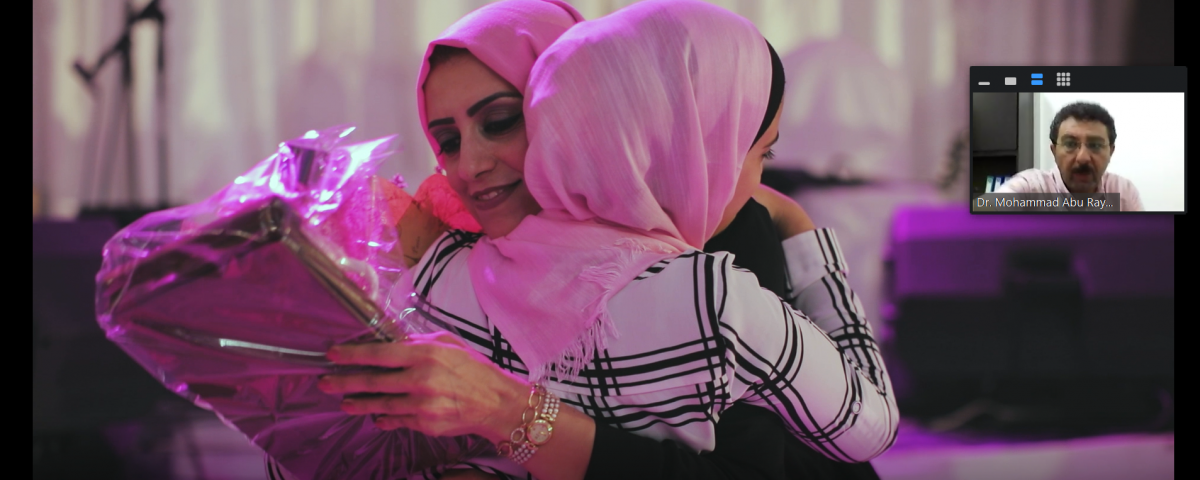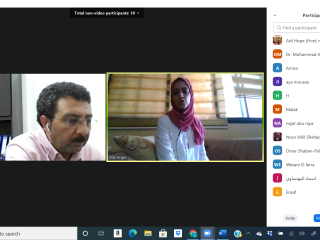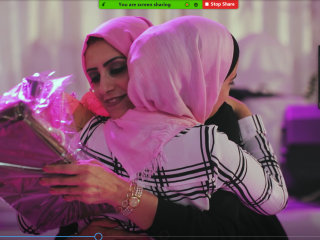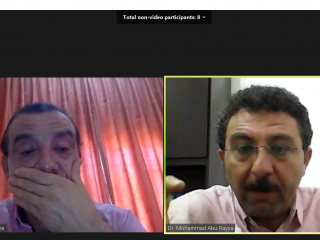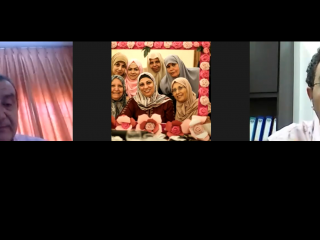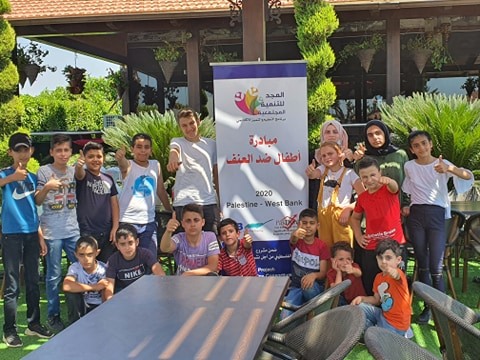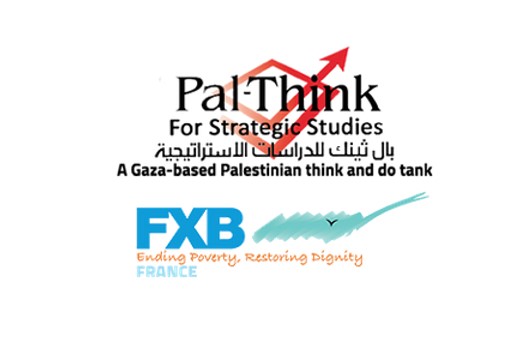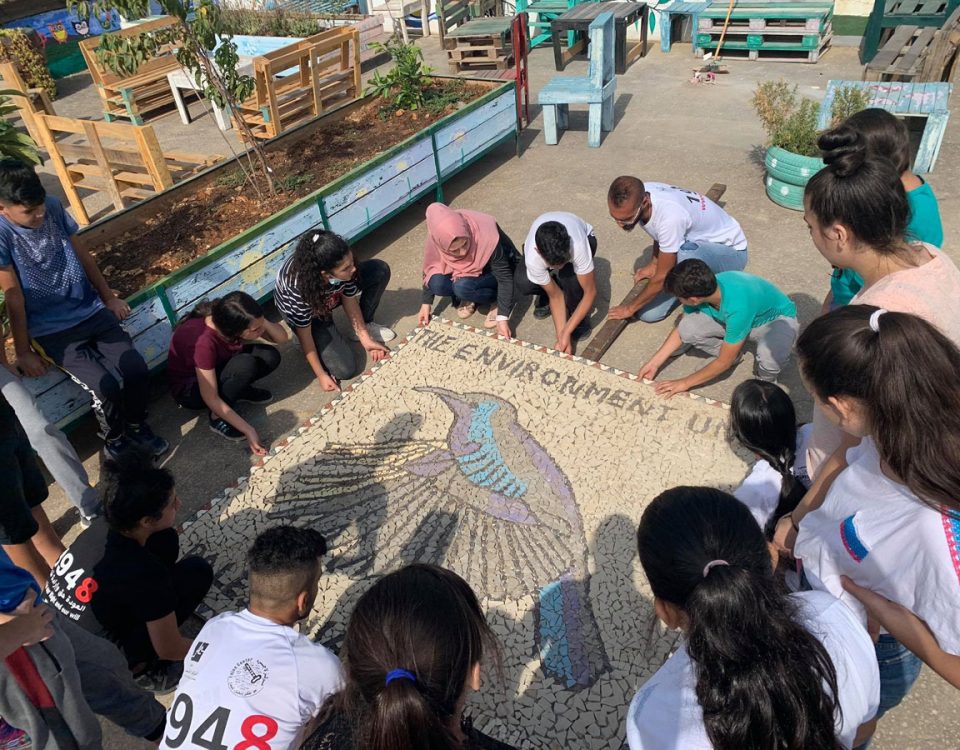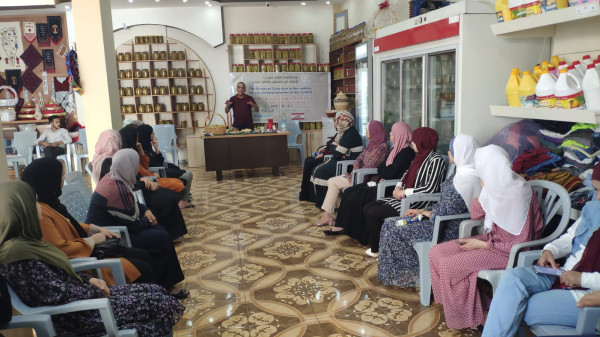- Contact Us
- +972 8-282-2005
- info@palthink.com
Situation of women with cancer suffering throughout COVID-19 pandemic initiative

The Conclusion of Molhema ( Inspiring) Initiative for Orphan Children and Women
13 September، 2020
Non-Violence as a life approach
13 October، 2020“The Program of Aid and hope for Cancer Care” organized a zoom workshop on the situation of women with cancer suffering during the Corona crisis. This workshop comes as a part of the situation of women with cancer suffering throughout COVID-19 pandemic initiative. This initiative comes under ” The Palestinian Consortium for Non-violence: towards a regional movement on Non-violence ” project, which is carried out in partnership with Pal Think and FXB France.
The meeting began with a welcome speech by Ms Iman Shhnen, Aid and hope’s Program Director, to clarify the idea of initiative and its importance in the current time through the COVID-19 pandemic. She also stressed the initiative’s main objectives which come as follows:
- Women’s issues with cancer.
- Strengthening the relationship with community institutions to reduce violence rate within the society.
- Society needs many workshops to promote a culture of non-violence.
- Advocacy for women with cancer.
Then Mr Omar Shaban, Pal-Think’s CEO, spoke about promoting a culture of non-violence and its importance for the Palestinian society. Besides, the role of Pal-Think in promoting non-violence culture.
After that, Dr Mohamed Abu Ria presented a fact sheet on the reality of women with Cancer during Coron crisis, which is produced within this initiative, Dr Abu Ria recommended the following:
- Promoting respect and act to protect the right of having the highest possible standard of physical and mental health.
- Ensuring regular access and security to exit and return when patients need.
- Building a private and specialized cancer hospital in the Gaza Strip.
- Localization of comprehensive medical service (chemotherapy, radiotherapy, diagnostic, and palliative).
- providing an integrated medical service by developing health and management strategies for cancer patients, such as palliative therapy.
- Activating the governmental role through the National Cancer Committee.
- Building the capacities of local cadres, as well as attracting medical cadres and competencies to improve service and fill the deficit in specialities.
- Enhancing the pioneering role of non-governmental organizations and specialized in serving cancer patients by securing a network of funding to support the community.
- Creating sustainable and creative ideas consistent with entitlement to referral for treatment abroad.
Afterwards, A documentary film entitled a story from Gazan was presented, this film is also produced within the activities of this initiative. The film was about the woman, Insaf, with breast cancer under Corona pandemic. The film dealt with issues, the most important of which is the long- term life routine of the continuous emergency state that is not normal in another country in the world. Besides, the problems and challenges that she faced because of the closure of crossings as a result of COVID-19 pandemic. Additionally,the suffering of women with cancer face due to the disease, its lack of treatment and the importance of the psychological support which is offered by the Aid and Hope for Cancer Care program for women with cancer like Insaf.
It is worth mentioning that many women with cancer attended the Zoom Meeting. Plus, the initiative aims to raise awareness about women with cancer’s issues, also, it aims to deliver women’s with cancer voice and sufferings to the international community.
Women’s with cancer have been stressed in their demands and recommendations that are listed as follow:
- Continuing to provide psychological support workshops to promote a culture of non-violence in women
- Strengthening the relationship with community institutions to reduce the rate of violence against women in society.
- Society needs many workshops in order to promote a culture of non-violence
- Women need workshops that contribute to increasing their resistance to stress, violence and a sense of safety

